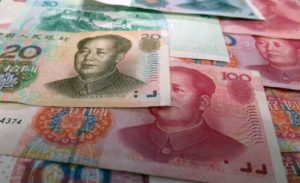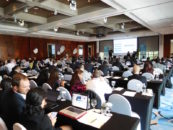
MAS Unveils New Moves To Boost Fintech Sector in Singapore
by Fintech News Singapore December 2, 2016The Monetary Authority of Singapore (MAS) has announced a series of moves to boost fintech development in the city-state and strengthen ties with other Asian countries.
This came shortly after MAS wrapped up its inaugural Singapore Fintech Festival, during which the authority made a number of announcements such as the government’s financial support to startups and firms for proof-of-concept trials, as well as its collaboration with fintech startup R3 to join its blockchain consortium.
Streamlining regulations
In a speech during the Fintech Festival, which ran between November 14 and 18, 2016, Ravi Menon, managing director of MAS, said that the authority intends to streamline regulations to spur innovation.
The authority will develop and refine its regulatory sandbox proposal for idea testing and create an activity-based modular framework for regulating payment services.
MAS also plans to develop a national Know-Your-Customer utility in Singapore, enable digital financial advice and insurance, strengthen cybersecurity, expand the innovation infrastructure for fintech and drive the creation of workspaces to facilitate partnerships and collaborations.
An APAC intelligence center focused on cybersecurity
Yesterday, the Financial Services Information Sharing and Analysis Center (FS-ISAC) and MAS announced the establishment of an Asia-Pacific (APAC) intelligence and analysis center to encourage regional sharing and analysis of cybersecurity information within the financial services sector.

Via Pixabay
Set to begin operations in the first half of 2017, the center “will strengthen the APAC cybersecurity ecosystem by providing deeper capabilities in cyber intelligence gathering and analysis for enhanced in-region intelligence support,” MAS said.
“In view of the increasing interconnectedness of financial services sector, sharing of timely and actionable cyber information between financial institutions is essential in building collective cyber resilience within the financial ecosystem,” said Sopnendu Mohanty, chief fintech officer at MAS.
“MAS believes that the establishment of FS-ISAC APAC Intelligence Centre will help to bolster the quality and timeliness of cyber threat intelligence received by financial institutions, strengthen cyber security risk management and response, as well as champion cybersecurity programs and initiatives in the APAC region.”
An integrated insurance market in Southeast Asia
Speaking at the ASEAN Insurance Summit in Yogyakarta, Indonesia, MAS’s insurance department head Lee Keng Yi, said that Singapore is considering an integrated ASEAN insurance market, according to a report from the Singapore Business Review.

Via Pixabay
The purpose of the integration is to “help domestic insurers be able to provide solutions to the economies,” she said.
“This will result into safer and more cost-effective provision of insurance which will help plot critical gaps in the respective ASEAN jurisdictions,” Yi said. “To further position the industry to play a bigger role in the ASEAN Economics Community, the next key step for us will be to liberalize the key insurance markets, starting with the catastrophe insurance.”
The liberalized marketplace would facilitate a wider distribution of risks through cross border provision of solutions and open access to the individual domestic markets, she said.
Strengthening ties with China
At the second Shanghai-Singapore Financial Forum in Shanghai, Jacqueline Loh, deputy managing director of MAS, said that China and Singapore could benefit from collaborating, noting the opportunities for synergies between the two countries notably in the area of fintech.
“This is a critical ingredient for future-ready international financial centers in Asia,” Loh said, quoted by Crowdfundinsider.
“Shanghai is already home to some of the largest fintech firms in the world. It is proactively taking measures to achieve its vision of becoming a global center of innovation, science, and technology (IST), which will also bring synergies between the financial and IST sectors.”

Via Pixabay
China’s banking system is expected to become the world’s largest within four years, Loh said. She predicts that China’s economy could represent one third of the world’s economy by 2050.
Loh said that there is much opportunity for Shanghai and Singapore to collaborate on both disintermediation by startups and partnerships with traditional finance. She added that Singapore was the perfect launch point for Chinese firms looking to expand into India and other Southeast Asian markets.
“MAS has rolled out a range of initiatives with strong government support designed to grow and anchor a rich and diverse fintech ecosystem in Singapore,” Loh said.
“There are now more than 200 fintech startups in Singapore and a vast majority of them have opened in the past two years. According to a KPMG report in July, this was the fastest growth rate in Asia.”
Featured image credit: Unsplash







